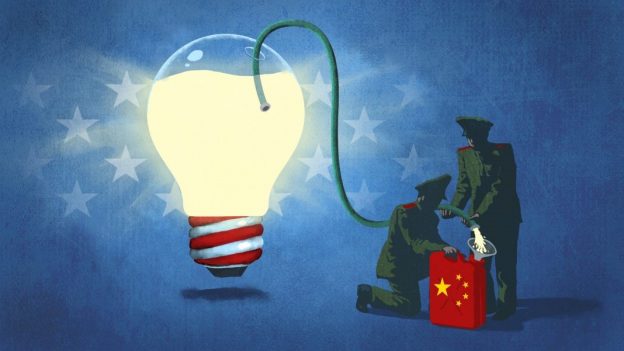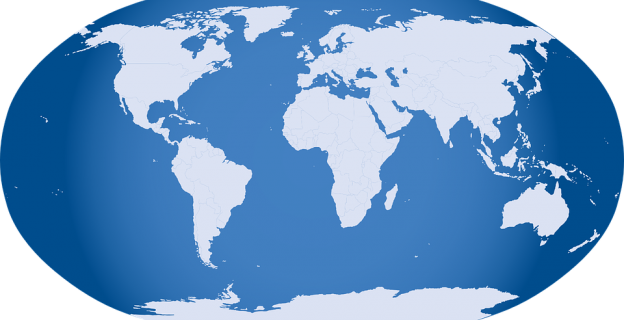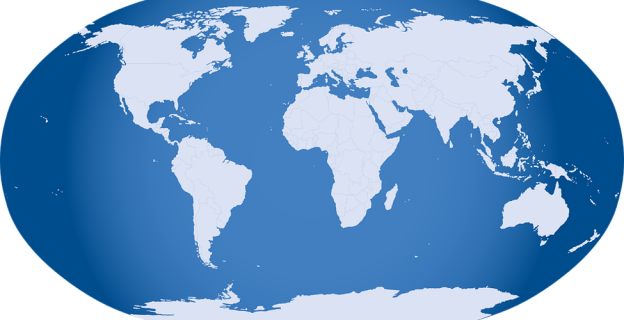In the aftermath of the revelations about Chinese espionage in the cases of Rep. Eric Swalwell and Senator Diane Feinstein, as well the purchase of influence in the Biden family, many are warning of the growing power and threat of Beijing’s agents, covert and open, in the United States.
What are the views of those entrusted with securing America from these acts? The New York Analysis has examined what has been said by key sources:
FBI Director Christopher Wray detailed the [Chinese Communist Party’s] CCP’s “expansive approach” to stealing information and intellectual property.:
Methods include everything from state-sponsored computer hacking to pressuring researchers to steal data and requiring, by law, that Chinese technology firms share data with the CCP.
[China is] doing all it can to exploit our openness while taking advantage of its own closed system,” noted Wray.
He added that the Chinese regime’s theft of U.S. intellectual property has resulted in one of the largest transfers of wealth in human history.
The FBI director’s warning comes as the U.S. and other countries are taking steps to protect intellectual property from the CCP. President Trump in May issued a proclamation aimed at stopping the CCP from misusing U.S. visas to steal research in support of its military.
Wray said the CCP is unable to compete with the United States’ open system on equal terms, and is instead seeking to be the world’s only super power by any means necessary. He said the CCP’s methods of theft and coercion include:
- Hacking companies and governments to access information.
- Paying researchers to steal technology and industrial secrets.
- Censoring journalists and opposing opinions.
- Threatening dissidents and their families in China and abroad.
U.S. law enforcement is working with foreign partners to arrest the responsible people. Wray said federal prosecutors have charged Huawei with racketeering conspiracy, alleging repeated thefts of intellectual property from U.S. companies.
Economic espionage cases linked to China have increased roughly 1,300 percent in the last decade, Wray said. The FBI has more than 1,000 investigations into possible theft of U.S. technology and roughly 1,000 more counter-intelligence investigations related to China, Wray said.
But he also drew a distinction between violations caused by China’s government and the valuable contributions of its people around the world, including to the United States.
“Confronting this threat effectively does not mean we shouldn’t do business with the Chinese,” Wray said. “But it does mean that when China violates our criminal laws and international norms, we’re not going to tolerate it.”
At a speech to the Center for Strategic and International Studies, Wray described his agency’s effort to counter Beijing’s spies:
“Understanding the Chinese counterintelligence threat better will help us respond to it more effectively. China is taking a multi-faceted approach, so we’ve got to have a multi-faceted response. Our folks at the FBI and at DOJ are working their tails off every day to protect our nation’s companies, our universities, our computer networks, and our ideas and innovation. To do that, we’re using a broad set of techniques—from our traditional law enforcement authorities to our intelligence capabilities.
“…I’ll briefly note that we’re having real success, real impact. With the help of our many foreign partners, we’ve arrested targets all over the globe. Our investigations and prosecutions have exposed the tradecraft and techniques the Chinese use, raising awareness of the threat and our industries’ defenses.
“They also show our resolve and our ability to attribute these crimes to those responsible. And we’ve seen how our criminal indictments have rallied other nations to our cause, which is crucial to persuading the Chinese government to change its behavior. We’re also working more closely than ever with partner agencies here in the U.S., and our partners abroad.
“We’ve got a host of tools we can use, from criminal charges and civil injunctions to things like economic sanctions, entity listings, and visa revocations. We’re also working with CFIUS—the Committee on Foreign Investment in the United States—in its review of foreign investments in American companies that produce critical technologies or collect sensitive personal data of U.S. citizens.
“But we can’t do it on our own; we need a whole-of-society response, with government and the private sector working together. That’s why we in the intelligence and law enforcement communities are working harder to give companies and universities the information they need to make informed decisions and protect their most valuable assets.
“Through our Office of Private Sector, the FBI has stepped up our national outreach to spread awareness of this threat. For example, we’re holding conferences for members of our Domestic Security Alliance Council, where we share information with Fortune 1000 companies about China’s continued efforts to steal intellectual property. We also have private sector coordinators in each of our 56 field offices, who lead our engagement with local businesses and universities.
“We’re meeting with these partners frequently, providing threat awareness briefings, and helping them connect to the right people in the FBI, on any concern. Our Office of Private Sector also engages with a variety of academic associations on the China threat, including the American Council on Education, the Association of American Universities, and the Association of Public and Land-Grant Universities.
“Last October at FBI Headquarters, we hosted an Academia Summit where more than 100 attendees discussed how the academic community can continue to work with the FBI and other federal agencies to tackle national security threats on our campuses. All of this outreach is geared toward helping our partners take the long view and preventing our openness from being exploited.
“In this country, we value our open, free-market system—including the way it attracts international investment and talent to our country. And we value academic freedom—including international collaboration and the benefits we gain from having talented students from abroad, including China, come here to study. We’re not going to change who we are. But at the same time, we’ve got to be clear-eyed and thoughtful about the threat from China and do everything possible to ensure a level playing field between our two countries. So the FBI is encouraging our business and academic partners to keep the long view in mind when engaging with China.
“We’re asking executives and boards of directors to carefully consider who they choose to do business with and who they make part of their supply chains. A decision to enter into a joint venture or contract with a particular vendor might look good to them in the near term. It might make a lot of money today; it might sound great on the next earnings call. But it might not look so great a few years down the road, when they find themselves bleeding intellectual property or hemorrhaging their most sensitive data.
“We’re also encouraging universities to take steps to protect their students from intimidation or control by foreign governments and to give them ways to report such incidents. We’re urging them to seek transparency and reciprocity in their agreements with foreign institutions. And to do their due diligence on the foreign nationals they allow to work and study on their campuses.
“Finally, we’re asking our private sector and academic partners to reach out to us if they see something that concerns them. We’re going to keep working to build trusted relationships with them, so that they know—with confidence—that we’re here to help.
The U.S.-China Security and Economic Review Committee stresses that “The United States faces a large and growing threat to its national security from Chinese intelligence collection operations. Among the most serious threats are China’s efforts at cyber and human infiltration of U.S. national security organizations. These operations are not a recent phenomenon, but reports of Chinese espionage against the United States have risen significantly over the past 15 years.
“The threat from Chinese intelligence operations also extends overseas. For example, China’s growing technical intelligence collection capabilities are increasing its ability to monitor deployed U.S. military forces. Moreover, by infiltrating and attempting to infiltrate defense entities in U.S. ally and partner countries, China could affect U.S. alliance stability and indirectly extract sensitive U.S. national defense information. Meanwhile, the national security implications of Chinese intelligence collection operations have grown amid U.S.-China competition and Beijing’s expanding military might.”
Illustration: U.S. State Dept.









